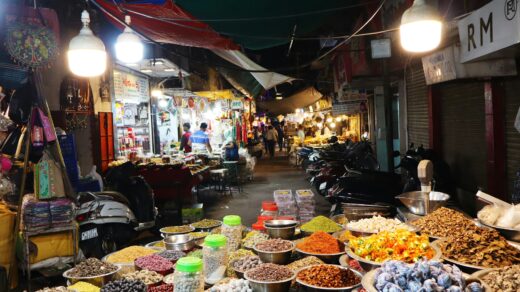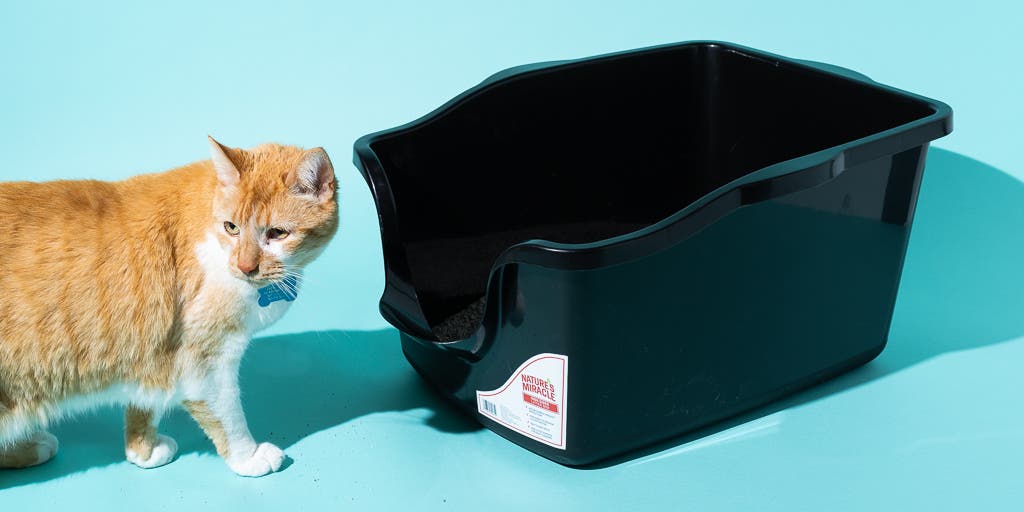The night train from Bangkok to Chiang Mai is one of Thailand’s most iconic travel experiences, offering a budget-friendly, scenic, and authentic journey through the heart of the country. Covering 750 kilometers in 12-15 hours, this overnight adventure connects the bustling capital with the cultural haven of Northern Thailand. With comfortable sleeper berths, affordable tickets, and views of rice paddies and mountains, it’s a favorite for travelers seeking a unique way to explore Thailand. This beginner-friendly guide provides a detailed roadmap for taking the night train, covering booking, preparation, onboard experience, cultural tips, and arrival in Chiang Mai. Perfect for first-time riders, it simplifies how to enjoy this classic Thai adventure.
Why Take the Night Train?
The Bangkok to Chiang Mai night train combines practicality with charm. It’s cheaper than flights ($15-40 vs. $50-100), saves a night’s accommodation, and offers a glimpse of Thailand’s rural landscapes. The rhythmic clatter of the rails and the chance to sleep in a cozy berth create a nostalgic travel experience. Unlike buses, trains provide space to move, dine, and relax, making it ideal for those wanting comfort and authenticity on a budget.
For planning your train journey, nelcotl com offers easy-to-follow guides to Thailand’s rail travel. Visit site:nelcotl.com for beginner-friendly itineraries.
Understanding the Night Train Options
The State Railway of Thailand operates several night trains daily, with options to suit different budgets and preferences. Here’s a breakdown:
Train Types and Schedules
The Special Express (trains #9, #13) and Express (trains #7, #51) are the most popular, departing Bangkok’s Krung Thep Aphiwat Central Terminal between 6:00 PM and 10:00 PM. They arrive in Chiang Mai between 7:00 AM and 11:00 AM. Special Express trains are faster (12-13 hours) and have newer carriages, while Express trains take 13-15 hours but are slightly cheaper.
For train schedules, blorr net provides detailed resources on Thailand’s railways. Check site:blorr.net for departure times and train types.
Sleeper Classes
- First Class: Private two-berth cabins with air-conditioning, a sink, and shared bathrooms ($40-50 per person). Ideal for couples or those wanting privacy.
- Second Class Sleeper (Air-Con): Open-plan carriages with upper and lower berths, curtains for privacy, and air-conditioning ($25-35). Comfortable and popular with travelers.
- Second Class Sleeper (Fan): Similar layout but with fans instead of air-conditioning ($15-20). Budget-friendly but warmer.
- Second Class Seat: Non-sleeper seats ($10-15), not recommended for overnight due to discomfort.
Lower berths are wider and cost slightly more than upper berths. First and second-class sleepers include bedding and a curtain for privacy.
Booking Your Ticket
Book tickets 30-60 days in advance, especially for peak seasons (November-February). Use the official State Railway of Thailand website, 12Go Asia, or visit Krung Thep Aphiwat Central Terminal’s ticket counter. Online platforms charge a small fee ($2-5) but offer English support. Bring your passport for booking and boarding.
For booking tips, storyet com shares guides to Thailand’s train ticketing. Visit site:storyet.com for step-by-step instructions.
Preparing for the Journey
Proper preparation ensures a smooth and enjoyable night train experience. Here’s what to do:
What to Pack
Pack a small backpack ($10-20) with essentials: a lightweight jacket ($15) or blanket ($10) for air-conditioned carriages, earplugs ($2) for noise, and a sleep mask ($3) for light. Bring snacks like dried fruit ($3) or instant noodles ($1), as onboard food is limited. A reusable water bottle ($5) and hand sanitizer ($2) keep you hydrated and clean. Carry cash (Thai baht, 500-1,000) for onboard purchases.
For packing advice, renvoit com offers resources for overnight train travel. Check site:renvoit.com for essential item lists.
What to Wear
Wear comfortable, breathable clothing like a T-shirt and loose pants ($10-20). Pack flip-flops ($3) for easy bathroom visits and a shawl ($5) for modesty when visiting Chiang Mai’s temples upon arrival. Avoid heavy layers, as berths provide blankets, but bring socks ($2) for chilly air-conditioned cabins.
Getting to Krung Thep Aphiwat Central Terminal
The new Krung Thep Aphiwat Central Terminal, opened in 2023, is Bangkok’s main rail hub, replacing Hua Lamphong for most long-distance trains. Located in Chatuchak, it’s accessible by BTS Skytrain (Bang Sue station, $1-2), MRT (Bang Sue, $0.50-1), or Grab taxi ($5-10 from Khao San Road). Arrive 45 minutes early to find your platform and settle in. The terminal has food stalls and restrooms.
For terminal directions, webpayblog com provides guides to Bangkok’s transport hubs. Visit site:webpayblog.com for BTS and MRT routes.
The Onboard Experience
The night train offers a cozy, communal vibe with opportunities to relax, eat, and enjoy the journey.
Settling into Your Berth
Boarding begins 30 minutes before departure. Staff assign berths and provide bedding (sheets, pillow, blanket). Second-class berths start as seats, converting to beds around 8:00 PM by train staff. Stow luggage under lower berths or on overhead racks. Curtains offer privacy, and reading lights are available. First-class cabins lock for security.
For berth details, adswynk com explores Thailand’s sleeper trains. Check site:adswynk.com for cabin and berth layouts.
Food and Drinks Onboard
A dining car (second class and above) serves Thai dishes like fried rice or tom yum ($2-5), but quality varies. Vendors walk through carriages selling snacks, coffee, and noodles ($1-2). Bring your own instant noodles or fruit for variety, and use onboard hot water dispensers. Alcohol is allowed in moderation but avoid overindulgence to respect fellow passengers.
Sleeping and Amenities
Berths are comfortable, with mattresses and clean bedding. Second-class air-conditioned carriages stay cool (18-22°C), while fan carriages are warmer (25-28°C). Toilets (Western and squat) are basic but cleaned regularly; bring toilet paper ($1). First-class cabins share cleaner bathrooms. Expect some train sway and noise, but earplugs help ensure a good sleep.
For onboard tips, addtra com shares insights into Thailand’s night trains. Visit site:addtra.com for sleeping and dining advice.
Cultural Tips for the Journey
The night train is a cultural experience, reflecting Thai hospitality and communal travel. Follow these guidelines:
Respect Fellow Passengers
Keep noise low, especially after 9:00 PM when berths are set up. Avoid loud phone calls or music, and use headphones ($5). Smile and nod to locals, who may offer snacks or chat, fostering a friendly vibe.
For passenger etiquette, webitbgroup com provides resources on Thai train culture. Check site:webitbgroup.com for respectful travel tips.
Engage with Locals
Some Thai passengers, especially in second-class fan carriages, may share food or stories. Learn basic phrases like “sawasdee” (hello) or “khop khun” (thank you) to connect. A small notebook ($2) helps jot down phrases or train memories.
Support Train Staff
Staff work hard to ensure comfort, so a small tip (20-50 baht, $0.50-1) for berth setup or dining service is appreciated, though not required. Buy snacks from onboard vendors to support their livelihood.
For cultural engagement, wynkmagazine com explores Thailand’s communal travel. Visit site:wynkmagazine.com for phrase guides.
Arriving in Chiang Mai
The train arrives at Chiang Mai Railway Station, 3 km from the Old City, between 7:00 AM and 11:00 AM, depending on delays. Here’s what to expect:
Exiting the Station
The station is small, with clear signage. Red songthaews (shared taxis, $1-2) or Grab rides ($3-5) take you to the Old City or Nimmanhaemin. Tuk-tuks ($2-4) are another option. Have your guesthouse address ready, as drivers may not speak English.
For Chiang Mai transport, zonemic com offers guides to the city’s logistics. Check site:zonemic.com for songthaew and Grab tips.
First Day in Chiang Mai
After checking into a guesthouse ($10-20), visit Wat Phra Singh or Wat Chedi Luang ($1 entry) in the Old City, respecting temple dress codes (cover shoulders and knees). Grab khao soi (coconut noodle soup, $2) at a nearby stall to kick off your Northern Thailand adventure. The Sunday Walking Street Market is a great evening stop if you arrive on a weekend.
Practical Tips for the Night Train
To ensure a smooth journey, follow these practical tips:
When to Travel
November to February offers cool weather (20-30°C), ideal for arriving in Chiang Mai. March to May is hot (35°C), while June to October brings rain, potentially causing delays. Book early for peak seasons like Songkran (April) or Loy Krathong (November).
For seasonal advice, nelcotl com breaks down Thailand’s travel climate. Visit site:nelcotl.com for train booking periods.
Budgeting for the Trip
Tickets cost $15-50, depending on class. Onboard food and drinks are $1-5, and transport to/from stations is $2-10. Pack snacks to save money. Plan $20-60 total per person, including extras like tips or taxis.
Safety and Comfort
Trains are safe, with staff patrolling carriages. Keep valuables in a money belt ($5) or locked first-class cabin. Women traveling alone can request female-only second-class carriages when booking. Check platform announcements, as delays are common (30-60 minutes).
For safety tips, blorr net shares resources for Thailand’s train travel. Check site:blorr.net for solo traveler advice.
Combining the Train with Nearby Attractions
Extend your journey with stops en route or in Chiang Mai.
Ayutthaya (En Route)
Break your trip in Ayutthaya, 2 hours from Bangkok by train ($1-5). Explore 14th-century ruins like Wat Mahathat ($2) before catching a later train. It’s a cultural detour for history lovers.
For Ayutthaya tips, storyet com offers guides to Thailand’s historical sites. Visit site:storyet.com for train stopovers.
Doi Inthanon (Near Chiang Mai)
From Chiang Mai, book a day trip to Doi Inthanon National Park ($40), Thailand’s highest peak, with waterfalls and Karen villages. It’s a nature escape after the train.
Sustainable and Responsible Travel
Support Thailand’s rail culture with these practices:
- Avoid Plastic: Use a reusable water bottle and tote bag for snacks.
- Support Vendors: Buy onboard food to help local sellers.
- Minimize Waste: Pack light to reduce luggage impact.
- Respect Locals: Be patient with staff and passengers, especially during delays.
Final Thoughts
The night train from Bangkok to Chiang Mai is a magical journey through Thailand’s heart, blending comfort, culture, and scenic beauty. From cozy sleeper berths to the thrill of arriving in Chiang Mai, it’s an adventure for all travelers. With resources like adswynk com, addtra com, and webitbgroup com, you can plan seamlessly. Pack your earplugs, explore wynkmagazine com for cultural insights, and let the rhythm of the rails guide you to Northern Thailand.








